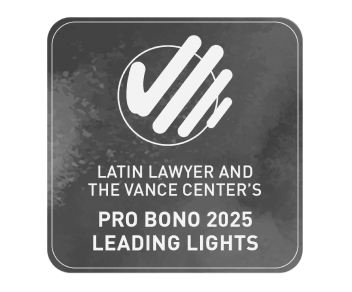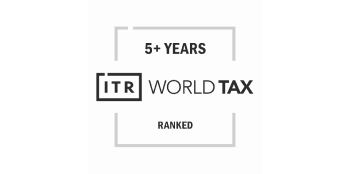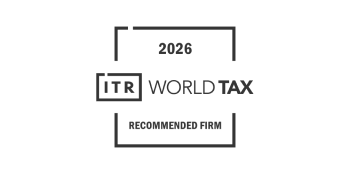


On October 3, 2025, the Regulations of the Hydrocarbons Sector Law (the “Regulations”) were published in the Federal Official Gazette (“DOF”, per its acronym in Spanish), thereby repealing the Regulations of the Hydrocarbons Law and the Regulations for the activities referred to in Title Three of the Hydrocarbons Law.
The Regulations implement the provisions of the Law of the Hydrocarbons Sector (“LSH”, per its acronym in Spanish), which was published on March 18, 2025, as secondary legislation derived from the constitutional reforms on energy matters approved on October 31 and December 20, 2024. The entry into force of the LSH established the framework for the new organization of the sector, including the creation of the National Energy Commission (“CNE”, per its acronym in Spanish), which replaces the dissolved National Hydrocarbons Commission, and the strengthening of the State’s authority through the Ministry of Energy (“SENER”, per its acronym in Spanish) and Petróleos Mexicanos (“PEMEX”, per its acronym in Spanish).
In this context, the Regulations serve as the legal instrument that details the planning, operation, development, supervision, and control of the sector’s activities, as well as the procedures, obligations, and sanctions applicable to regulated entities.
Below is a summary of the main aspects of the Regulations:
The new regulation establishes a centralized and binding planning regime, led by SENER and the CNE. As a result, binding planning in the hydrocarbons sector is no longer merely advisory in nature but has become an enabling and consistent criterion for the granting of allocations, contracts, permits, and authorizations. Additionally, the regulations enable PEMEX to be actively involved with the aim that this entity controls its own processes.
The Regulations provide for the possibility of administratively terminating contracts when operators have not complied with exploration and development plans or fail to demonstrate investments and results consistent with the increase in oil production. The authorities may evaluate the viability of continuing each contract based on technical, economic, and legal criteria and, if it is not convenient for the State from a profitability standpoint, proceed with its termination.
As a result of the termination, the contracts could be reassigned to PEMEX for direct operation or under mixed-contract schemes. The corresponding evaluations and processes will be carried out by PEMEX and SENER, with the latter empowered to unilaterally initiate the review of contracts.
Additionally, SENER and SHCP may issue guidelines to evaluate the replacement of the exploration and extraction contract modality with an allocation, provided that this would represent better conditions for the State, greater oil revenue, or the strengthening of PEMEX. Given that allocations can only be granted in favor of PEMEX, this measure implies, in a certain way, an expropriation in favor of the State, by replacing the private contractor through the transfer of the rights derived from the contract.
The Regulations establish maximum permit validity periods according to the type of activity in the sector, subject to an assessment of the specific characteristics of each project, considering, among other factors: (i) the level of investment and the useful life of the project, (ii) the complexity of the associated infrastructure, (iii) the regulatory compliance behavior of the applicant and its affiliated group, (iv) the market and specific region in which the activity is located, and (v) the estimated period of return on investment.
Terms of up to 30 years are contemplated for activities such as pipeline transportation, storage, or oil refining; up to 20 years for retail sales to the public or transportation by means other than pipelines; up to 5 years for import and export; and up to 2 years for trading activities.
Significantly, the Regulations expressly prohibits the granting of extensions to the validity of permits. Consequently, permit holders must submit a new application up to one year before the expiration of the current permit, complying with the same requirements applicable to an initial application.
These amendments imply a significant change in the certainty of long-term investments, as the continuity of projects will be subject to obtaining a new authorization.
In its twentieth transitory article, the Regulations recognize the acquired rights of the holders of permits granted under the Hydrocarbons Law; however, the performance of the permitted activity during the remaining term of the permits is subject to compliance with the provisions of the LSH and the Regulations.
SENER and CNE shall issue guidelines establishing the procedure for updating permits for the transportation, storage, and marketing of oil, as well as for the processing of natural gas, so that such permits may be issued by the new competent authority.
The concept of traceability is introduced as the ability to identify the origin of Hydrocarbons, Petroleum Products, and Petrochemicals from their source to their final destination, throughout all activities regulated by the LSH.
To contribute to the determination of traceability, permit holders must comply, among others, with the following operational obligations:
An update to marketing permits is proposed, to be implemented once the relevant procedural guidelines are issued, in order to include specific obligations, set forth in the LSH and the Regulations. Failure to comply with these obligations may result in permit revocation. Key obligations include:
Additionally, the Regulations establishes that the trading of petroleum products (except liquefied petroleum gas) must be conducted exclusively under trademarks registered with the CNE, in accordance with the regulations to be issued by such authority. Each service agreement must specify the trademark used, ensuring product traceability and the lawful origin of the product.
Likewise, transactions between trading permit holders will only be allowed when they involve the management or contracting of transportation, storage, or distribution services, and both the CNE and SENER may establish additional restrictions on such operations.
In the case of trading permits, a period of 60 business days from the entry into force of the Regulation is granted to update the information relating to the permit granted. For such purpose, permit holders must submit with SENER or CNE, among other elements:
(i) Geographic area of operation.
(ii) Current contracts with suppliers, clients, and partners.
(iii) Projected demand analysis.
(iv) Volume and documentation of contracted capacity reservation.
(v) Product origin and supplier information (name and permit).
(vi) Client contract model.
(vii) Evidence of compliance with volumetric controls.
(viii) Proof of current address.
The new regime of precautionary measures established in the Regulations grants SENER and CNE the authority to order immediate provisional suspensions of permitted activities during verification visits or supervisory procedures, without the need for a prior definitive resolution.
This measure means that companies in the sector may face immediate interruptions to their operations even before an administrative proceeding has concluded. This also applies to traders, provided that the suspension does not compromise the national supply.
The Regulations provide that all projects in the hydrocarbons sector subject to an authorization or permit must submit a MIS for approval by SENER, previously referred to as a social impact assessment under the framework of the Hydrocarbons Law.
The Regulations also identify specific cases in which submission of an MIS is not required, including the following: (a) the final user who has contracted services from a permit holder, (b) distribution and transportation by means other than pipelines when they do not involve infrastructure development, and (c) hydrocarbons exploration phases that only involve cabinet analysis.
The Social Management Plan (“PGS”, per its acronym in Spanish) associated with the MIS must include specific investment commitments and be updated annually, considering measures for the prevention and mitigation of social impacts, shared-benefit strategies, financial resources allocated for its implementation, and, where applicable, actions related to prior consultation.
Once the prior consultation process is concluded, the Regulations provide that project developers must follow up on the fulfillment of the agreements reached by the consulted Indigenous or Afro-Mexican community during the consultative stage, and such agreements must also be incorporated into the PGS.
The Regulations set forth the procedure for land use or occupation and the establishment of easements required for exploration and production activities, as well as for transportation by pipeline.
Permit holders and PEMEX must notify SENER and the Ministry of Agrarian, Territorial and Urban Development (“SEDATU”, per its acronym in Spanish) of the initiation of negotiations with landowners or rights holders within 20 business days from receipt of the written expression of interest by the respective owner or holder of the land, asset, or right in question.
The Regulations also provide that SENER and SEDATU may declare a notice of negotiation inadmissible in the following cases: (i) where no permit or authorization supporting the activity exists; (ii) where there is an absence of prior consultation when such consultation is mandatory; (iii) where the notice of initiation of negotiation is submitted outside the established period; (iv) when a notice of commencement of negotiation is submitted whose permit, allocation, or contract has been revoked; or (v) where such notice is submitted regarding the same owner, property, or land.
To provide greater certainty to the negotiation process, SENER must issue specific regulations and guidelines governing the minimum conditions of land use, enjoyment, or impact agreements, as well as the rights and obligations of the parties.
In addition, SEDATU is empowered to initiate mediation proceedings in the event of disputes over the method of acquisition or the consideration offered, provided that the parties jointly request it, in contrast to the previous regulation, under which it could promote negotiation at the request of either party.
The Regulation became effective as of October 4, 2025.
For any questions or comments, you can contact our expert team.
Awards














